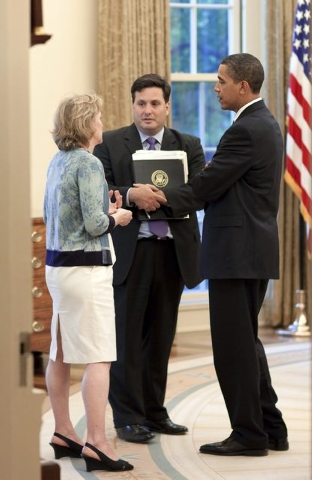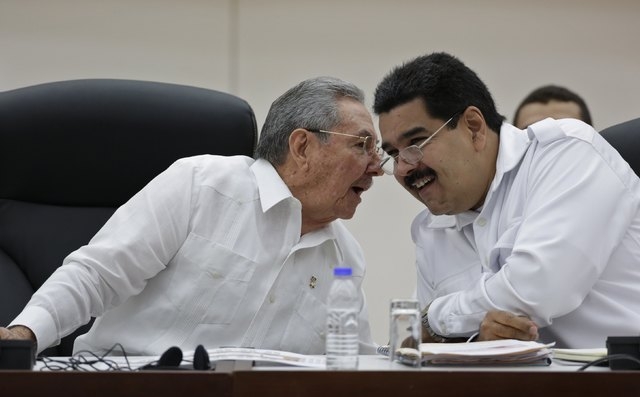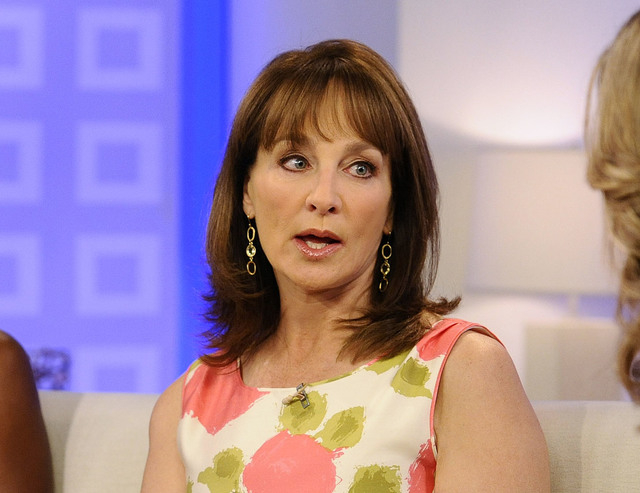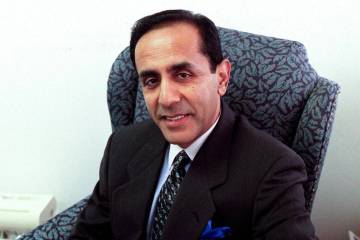Monitoring ends for dozens on Ebola watch lists
DALLAS — Weeks of worry about Ebola infection ended on Monday for several dozen people who came off watch lists in the United States, but more than 260 others were still being monitored for symptoms as the U.S. government ramped up its response to the virus.
In Texas, 43 people who had contact with Liberian Thomas Eric Duncan, the first person diagnosed with the disease in the United States, were cleared of twice-daily monitoring after showing no symptoms during a 21-day incubation period. The Texas health department said they included four people who shared an apartment with Duncan and had been in quarantine. It said 120 people in Texas were still being monitored.
The 43 people removed from watch lists included Louise Troh, Duncan’s fiancée, and three others who shared an apartment with Duncan after he arrived in Dallas in late September.
“There’s zero risk that any of those people who have been marked off the list have Ebola. They were in contact with a person who had Ebola and the time period for them to get Ebola has lapsed. It is over. They do not have Ebola,” Judge Clay Jenkins, the top elected official in Dallas County, said at a news conference.
Three people were still in quarantine in Ohio, among 142 under different levels of monitoring, the state health department said. The three in quarantine had direct skin contact with a nurse who visited the state after being infected while treating Duncan. Another Texas nurse also has Ebola and is being treated by the National Institutes of Health.
Dr. Anthony Fauci, director of NIH infectious diseases unit, said on Monday that the nurses “did not do anything wrong. Period,” and that new protocols would come out within hours to a day.
In a public letter during the weekend, Texas Health Resources Chief Executive Barclay Berdan acknowledged that Texas Health Presbyterian, where Duncan first went, made mistakes, including initially not diagnosing him with Ebola.
NEW GUIDELINES
The government’s new guidelines were expected to tell U.S. health workers to cover skin and hair completely when dealing with Ebola patients. The old guidelines, based on World Health Organization protocols, said workers should wear masks but allowed some skin exposure. The virus is spread through direct contact with the blood and bodily fluids of infected people and it is not airborne.
While only three people have been diagnosed with the disease in the United States, the end of monitoring for some could ease widespread anxiety over Ebola in the country, where some lawmakers have called for a travel ban from West Africa to check the spread of the virus.
The worst Ebola outbreak on record has killed more than 4,500 people, mostly in Liberia, Sierra Leone and Guinea.
The World Health Organization declared Nigeria free of Ebola on Monday after 42 days with no new cases, a success story for African nations struggling to contain the virus. Senegal was declared free of Ebola by the WHO on Friday.
EBOLA CZAR
U.S. Ebola response coordinator Ron Klain faces a long to-do list when he begins his new role: Soothe Americans’ jitters about the virus, fix federal coordination with states and restore a sense of control over the crisis that the White House had lost.
Klain, a former senior aide in two Democratic administrations who is known for his keen political antenna, must also smooth over tensions with lawmakers who are angry about the government’s missteps and mixed messages.
Some critics have said the naming of a “czar” would add another layer of bureaucracy to a sprawling response.
But Thad Allen, the former Coast Guard chief who served in a similar role leading the administration’s response to the 2010 Gulf oil spill, said it helps to have one person who can explain how all the pieces are working together during a crisis.
“Many times in these complex responses you have to combine resources across agencies, work across boundaries,” Allen said in an interview.
Klain met on Saturday with White House chief of staff Denis McDonough, though he does not start his job officially until Wednesday.
SNYDERMAN SNAFU
The quarantine against possible Ebola exposure ends this week for Dr. Nancy Snyderman, but the troubles clearly aren’t over for NBC News’ chief medical editor.
An admitted lapse in the quarantine, combined with a curiously imprecise explanation, unleashed a furious response. NBC must now decide whether Snyderman’s credibility is too damaged for her to continue reporting on Ebola or other medical issues and, if so, for how long. The network would not comment.
Snyderman, a surgeon who spent 17 years as a medical correspondent for ABC News and has been at NBC since 2006, covered the Ebola outbreak in West Africa and worked briefly with Ashoka Mukpo, the cameraman who caught the virus and is now being treated in Nebraska. Upon returning to the United States, Snyderman and her crew voluntarily agreed to quarantine themselves for 21 days, the longest known incubation period for the disease. They have shown no symptoms.
Yet New Jersey health officials ruled that her quarantine should be mandatory after Snyderman and her crew were spotted getting takeout food from a New Jersey restaurant.
Susan Dentzer, a longtime health journalist and commentator for National Public Radio and the PBS “NewsHour,” said people shouldn’t forget that Snyderman put herself at risk to travel to Africa and cover the story. The public is reacting to a fear of Ebola instead of science, she said.
NIGERIA EBOLA-FREE
Nigeria was declared free of the deadly Ebola virus on Monday after a determined doctor and thousands of officials and volunteers helped end an outbreak still ravaging other parts of West Africa and threatening the United States and Spain.
Caught unawares when a diplomat arrived with the disease from Liberia, authorities were alerted by Doctor Ameyo Adadevoh, who diagnosed it, kept him in the hospital despite protests from him and his government and later died from Ebola herself.
They then set about trying to contain it in an overcrowded city of 21 million where it could easily have turned a doomsday scenario if about 300 people who had been in direct or indirect contact with him not been traced and isolated.
“This is a spectacular success story,” Rui Gama Vaz from the World Health Organization told a news conference in the capital Abuja, where officials broke into applause when he announced that Nigeria had shaken off the disease.
“It shows that Ebola can be contained, but we must be clear that we have only won a battle, the war will only end when West Africa is also declared free of Ebola.”
CUBA SUMMIT
Cuba and its closest allies from Latin America and the Caribbean meet in Havana on Monday to set plans for protecting their countries from Ebola and seek ways to help West Africa.
No cases have yet been reported in Latin America or the Caribbean.
The meeting in Cuba is aimed at keeping Ebola at bay and it brings together senior officials from the ALBA bloc of nations — Cuba, Venezuela, Bolivia, Ecuador, Nicaragua, Antigua and Barbuda, Saint Vincent and the Grenadines, Saint Lucia and Dominica.
It also aims to help prevent the spread of Ebola in West Africa. Communist-run Cuba has already made a significant contribution, sending 165 doctors and nurses to Sierra Leone with another 296 set to depart for Liberia and Guinea this week.
(Additional reporting by Colleen Jenkins in Winston-Salem, North Carolina, Karen Brooks in Austin, Texas, David Morgan, Susan Heavey and Doina Chiacu in Washington and David Bailey; Writing by Jim Loney and Grant McCool; Editing by Bernadette Baum and Howard Goller)
Related
Ebola preparations launched months ago in Vegas
Nevada sets up Ebola task force
Reid rejects Ebola travel ban proposal






























